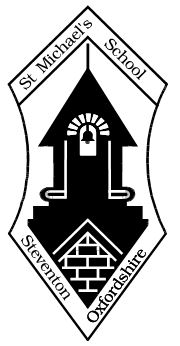Mathematics
Intent
At St Michael’s C of E Primary School, we inspire our children through our Mathematics Curriculum. As a foundation for our Mathematics curriculum, we use White Rose Maths, which offers a framework to teach the Mathematics Programme of Study as laid out by the National Curriculum and the Statutory Framework for the Early Years Foundation Stage, alongside other high-quality resources, including National Centre of Excellence in the Teaching of Mathematics (NCETM), and NRICH. White Rose has been influenced, inspired, and informed by the work of leading maths researchers and practitioners across the world and is based on the latest pedagogical research.
At St Michael’s, we strive to have children develop a positive attitude and interest in mathematics. From the earliest years, we encourage children to ‘have a go,’ to have children notice numbers, patterns, shapes, and connections and to be able to discuss their findings with others. It is important to instil a love of learning from an early age and to teach children that we learn from making mistakes. Children should have the chance to do this in every maths lesson, but should also recognise that these skills apply across the curriculum and even more widely in the real world.
Knowledge and Skills: Proficiency in mathematical concepts and skills is vital for engaging successfully with the real world. We want to open children’s eyes to this and help them to see the importance of how what they learn in the classroom applies to the real world, both every day for everyone and more broadly across disciplines and careers. We provide a maths curriculum that balances acquiring rapid fluency alongside opportunities to apply reasoning skills in various problem-solving contexts. Each classroom environment is set up to enable children to build independence in learning maths, from up-to-date working walls, carefully chosen scaffolds and accessible resources. Beyond teaching maths discretely, we give children the opportunity to apply and develop what they have learnt across wider learning within the Inspire Curriculum, such as in science, design and technology lessons, to support our intention that children see mathematical skills as something that is essential for their daily life.
Creativity & Adventure: We believe all children can achieve highly in maths. For some children, this demands a great deal of perseverance and resilience, and we talk explicitly about this in lessons and link it to other areas of curriculum learning, such as PSHE. We encourage children to support one another to build a classroom climate of endeavour. In virtually every lesson, children have the opportunity to apply mathematical reasoning to solve problems, which deepens their understanding and supports making connections across the curriculum. We take every opportunity to promote creativity in maths. This is particularly evident in the continuous provision on offer in our Lower School, through role play, small world and other exploration-based activities. In older years, creativity is embedded within our approach, where children represent their understanding in a range of ways, such as using models to represent fractions or finding numbers, shapes and patterns in the real world.
Our School Vision: Kindness is at the heart of everything we do at St Michael’s, and we work hard to create a classroom climate where mistakes are respected as part of the learning process. Staff model making mistakes to ensure children are comfortable to take risks in their learning and can see the value in their own errors or misconceptions. Explicit modelling of how to respond to other ideas helps children to be able to support one another. Children are encouraged to work collaboratively and support one another in their learning journeys to be the best they can be.
Implementation
Children are taught review and retrieval sessions at least three times a week, in addition to applying skills learned in maths across the wider curriculum.
We use White Rose Maths as a framework for teaching because of its Concrete - Pictorial Abstract approach, which is fundamental to helping children build mental images in their heads, fully understand concepts and spot patterns easily.
This framework supplements how lessons are taught and delivered, but they are not followed verbatim, as lessons are tailored to suit the needs of the children.
Concrete representation: a pupil is first introduced to an idea or skill by acting it out with real objects. This is a ‘hands-on’ component using real objects and is a foundation for conceptual understanding.
Pictorial representation: a pupil has sufficiently understood the ‘hands-on’ experiences performed and can now relate them to representations, such as a diagram or picture of the problem.
Abstract representation: a pupil is now capable of representing problems by using mathematical notation, for example, 12 x 2 = 24. It is important that conceptual understanding, supported by the use of representation, is secure for all procedures. Reinforcement is achieved by going back and forth between these representations.
Impact
By the time children in Year 6 leave us, we want them to have the following experiences and understanding:
Children will have the knowledge and skills to be able to:
-
Meet National Expectations for
-
Calculate efficiently with integers, fractions and decimals
-
Measure accurately
-
Interpret statistics effectively
-
Recognise shapes and their properties
-
Reason mathematically
-
Solve problems related to all of the above
-
Explain and represent their thinking clearly
-
Understand and use maths to enhance their learning across the Inspire Curriculum
-
Learn from mistakes and persevere when they meet challenges
Our School Vision:
As part of our Vision and our Maths Curriculum, children will:
-
Believe in their potential as mathematicians
-
Recognise the benefits of learning from mistakes or missteps
-
Collaborate with peers
-
Show respect for others’ ideas and thinking
